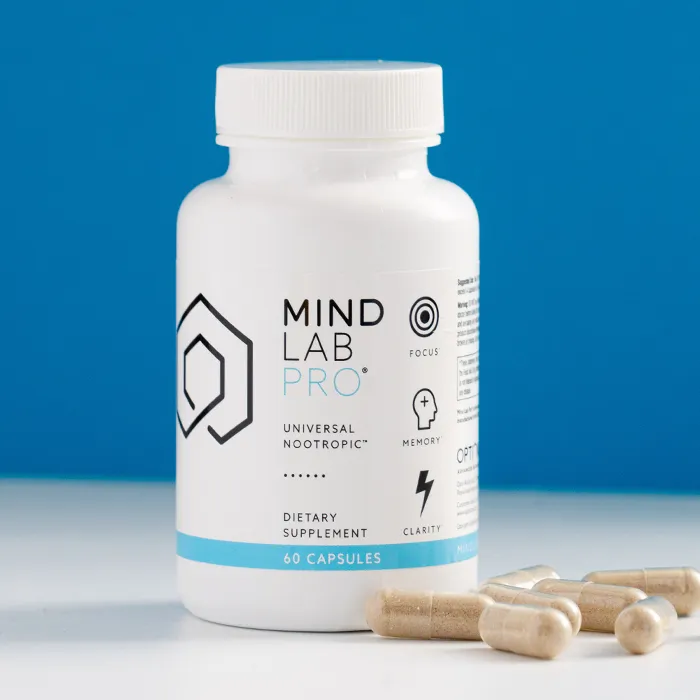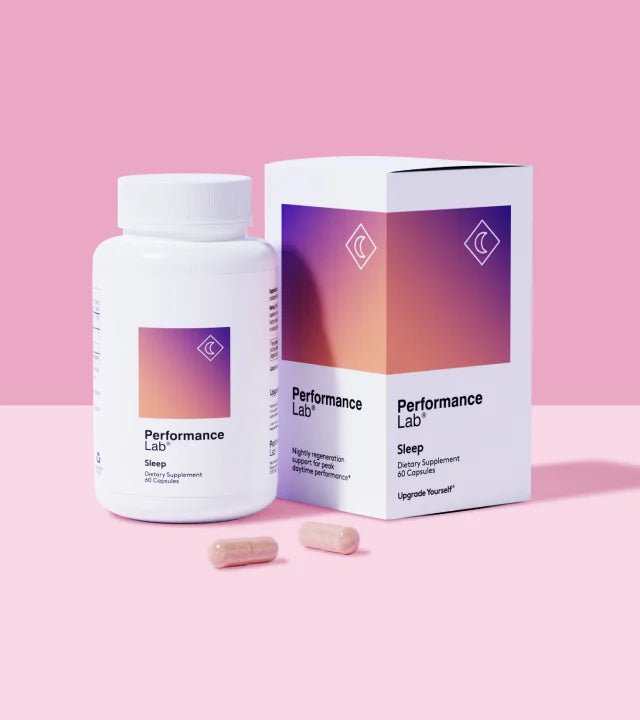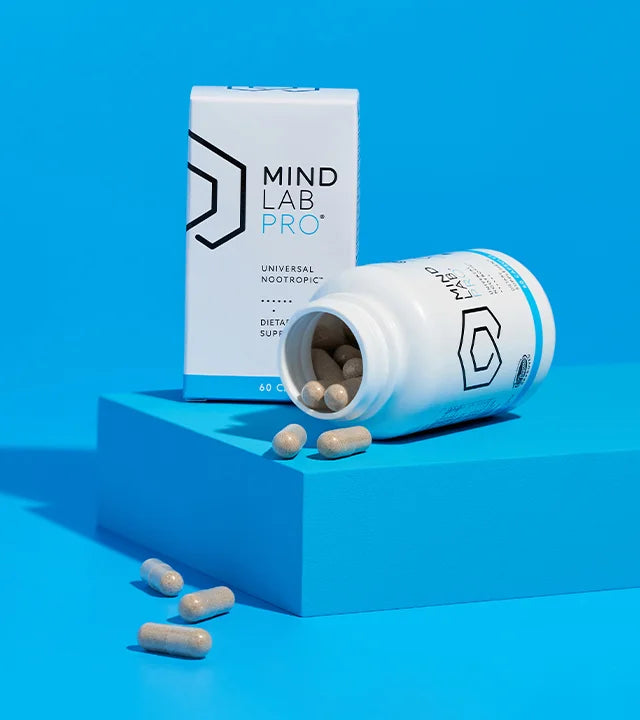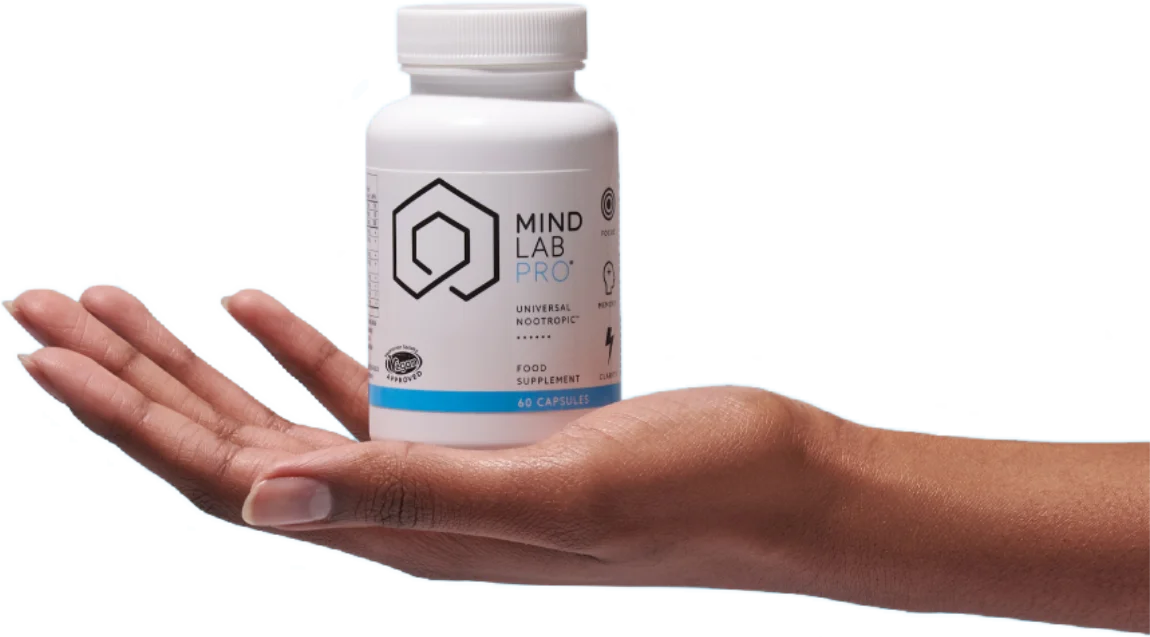Perimenopause and menopause mark a major transition in a woman’s life. They come with hormonal fluctuations that can lead to fatigue, mood swings, hot flashes, sleep disturbances and other symptoms. It all adds up to a feelings of imbalance and a lot of frustration.
A widely cited demographic estimate suggests roughly ~47 million women worldwide reach menopause each year—and the global population of menopausal women is projected to exceed 1.2 billion by 2030 (Hill, 1996). This adds up to a lot of frustrating symptoms.
In a large digital survey spanning multiple countries, the most commonly reported perimenopause symptoms among respondents 35+ were fatigue, physical/mental exhaustion, and irritability—even though hot flashes were the most widely “recognized” symptom (Hedges et al., 2024). A survey summarized by AARP found 75% of women ages 40–89 said menopause symptoms interfere with their lives (AARP Research, fielded 2018; published 2025).
Adaptogens are a class of herbs that may help women to ease their symptoms in a healthier, more comfortable way. If you are in perimenopause/menopause and want adaptogenic herbs—like rhodiola and ashwagandha—to help with hot flashes, mood, stress and energy, then this guide is for you.
In this article, we explore the best adaptogens for perimenopause and menopause, and how they can support energy, mood, sleep, and overall well-being. Let's get to it!
Key Takeaways
- Menopause is a natural phase in a woman’s life, marking the end of menstrual cycles and fertility.
- Menopause typically occurring between the ages of 45 and 55, it is diagnosed after 12 consecutive months without a period.
- Perimenopause is the phase leading up to menopause, marked by hormonal imbalances, irregular menstrual cycles and the start of symptoms.
- Menopausal symptoms and perimenopausal symptoms are caused by hormonal shifts, particularly declining estrogen.
- Symptoms may include hot flashes, night sweats, mood swings, physical and mental fatigue, sleep disturbances, brain fog, anxiety, low libido, weight gain and amplified stress levels.
- For many women, these symptoms can interfere with quality of life, energy levels, and emotional well-being.
- Hormone replacement therapy (HRT) is commonly used to help, but not all women are candidates or comfortable with it.
- Supplements represent a natural means of helping to managing perimenopause and menopause symptoms.
- Adaptogens are herbs and mushrooms that help the body adapt to stress and restore balance. They work gently and holistically and may be taken as supplements. Adaptogens can help ease some menopause and perimenopause symptoms.
Best Adaptogens for Perimenopause & Menopause in 2026
-
Ashwagandha: Helps balance cortisol, ease anxiety, and support thyroid and adrenal function -- key for managing stress, fatigue, and mood swings during hormonal transitions.
- Rhodiola Rosea: Boosts physical and mental stamina while easing burnout, which can be especially helpful for perimenopausal fatigue and brain fog.
- Maca Root: May support hormonal balance and libido by nourishing the endocrine system and helping regulate estrogen levels.
- Schisandra Chinensis: Offers liver-supportive detox benefits, enhances resilience to stress, and helps manage mood and hot flashes.
- Holy Basil (Tulsi): Promotes emotional balance, reduces anxiety, and supports metabolic health -- important during midlife hormonal shifts.
- Reishi Mushroom: Supports immune health, sleep quality, and calm, which are often disrupted during menopause.

Disclaimer
Important: This article is for educational purposes only and is not medical advice. Perimenopause and menopause can overlap with (or mimic) other health issues, and symptoms such as heavy or irregular bleeding, severe mood changes, new/worsening anxiety or depression, hot flashes that disrupt daily life, or sleep problems should be evaluated by a qualified healthcare professional. While adaptogen herbs may be discussed for stress, energy, sleep, or mood support, dietary supplements are not drugs and are not intended to diagnose, treat, cure, or prevent any disease. Only take dietary supplements under the supervision of your doctor.
What Is Menopause and Why Is It So Frustrating?
Menopause marks the end of a woman’s reproductive years. The transition starts with perimenopause, which can last for years as hormone levels fluctuate unpredictable. The drop in estrogen affects nearly every system in the body. Hormonal ups and downs that follow cause physical and emotional symptoms that may include:
- Hot flashes
- Night sweats
- Irregular periods
- Sleep disturbances
- Mood swings, anxiety & depression
- Fatigue
- Vaginal dryness
- Decreased libido
- Weight gain
- Memory issues ("brain fog")
- Cognitive health concerns
- Immune system issues
- Breast tenderness
- Joint pain
- Dry skin
- Hair thinning
- Urinary issues
While some women experience mild symptoms, others can really struggle with them to the point that they interfere with daily life, relationships, work and self-confidence.
Many women report that the most frustrating part of this life change is the unpredictability. One day you may feel like yourself again, and the next you’re dealing with night sweats and panic attacks.
Perimenopause and menopause are a whole-body, whole-mind experience. Adaptogens menopause benefits are holistic.
So if you are seeking relief with natural supplements, it seems wise to take a holistic approach to get the best results. With their far-reaching beneficial effects, especially for stress, adaptogens may be part of this strategy.
What Are Adaptogens?
Adaptogens are a class of natural substances -- mainly herbs and mushrooms -- that help the body adapt to stress and restore balance. They don’t target a single symptom. Instead, adaptogens work in a more holistic way by supporting homeostasis: the body’s natural state of equilibrium and healthy, normal functioning.
Adaptogens have many benefits, but for now let's focus on a key benefit for perimenopause and menopause: helping with stress.
Adaptogens help the body resist physical, emotional, and environmental stress by regulating the hypothalamic-pituitary-adrenal (HPA) axis and balancing cortisol levels (cortisol is known as "the stress hormone").
Connection Between Stress, Cortisol, and Perimenopause/Menopause
Menopause and perimenopause can be stressful. When the body experiences stress, it activates a system designed to help us cope. This system releases the hormone cortisol, which helps the body handle stress by raising energy, focusing attention, and suppressing non-essential functions (like digestion or immune responses) while the body is under pressure.
Under normal conditions, cortisol levels naturally rise in the morning to help us wake up and fall throughout the day, supporting our energy levels. However, chronic stress can create chronically elevated cortisol levels that can lead to negative effects like fatigue, irritability, and poor immune function.
During perimenopause and menopause, women experience significant hormonal shifts, particularly a drop in estrogen. This can affect how the body handles stress.
The body may no longer regulate cortisol as efficiently, which means that stress can feel more intense, and the effects of stress can be prolonged.
For many women, this can lead to increased feelings of anxiety, irritability, and mood swings, along with physical symptoms like sleep problems and fatigue. High cortisol levels, combined with the hormonal changes of menopause, can make it harder for the body to recover from stress, leaving women feeling more drained or overwhelmed.
Adaptogen herbs enhance physical and mental resilience to stress by stabilizing physiological processes -- which could hold potential for women going through menopause. But they have additional benefits that may help in more versatile ways, too, including by supporting:
- Cortisol regulation: Help support natural hormone balance, including the stress hormone cortisol; may in turn help with anxiety, sleep disruption, and abdominal weight gain.
- Mood and brain: Support brain health and may help with memory, concentration, and mood.
- Hormonal modulation: May help to balance estrogen levels and support healthy libido.
- Energy metabolism: Can reduce fatigue and improve endurance, addressing feelings of low vitality. Learn about natural energy supplements
- Liver support: May assist with liver detoxification, which is important for hormonal clearance.
- Inflammation-soothing and antioxidant effects: Fight oxidative stress, which plays a role in physical comfort and healthy aging.
Together, these bioactivities suggest that adaptogens may offer gentle but meaningful support throughout the menopause transition.
Best Adaptogens for Menopause
Ashwagandha

Ashwagandha (Withania somnifera) is one of the most studied adaptogenic herbs for stress resilience and hormone regulation.
In India's Ayuredic medicine practices, Ashwagandha -- classified as a "Rasayana" or rejuvenative herb -- has long been used for many aspects of wellness, including promote vitality, mental resilience, and hormonal balance. It helps balance the nervous and endocrine systems and has been shown to regulate cortisol levels, promote better sleep, and offer natural support for anxiety -- all common challenges during menopause.
Modern clinical reviews seem to back several of Ashwagandha's traditional uses, identifying its active withanolides and how they support hormone balance, reduce cortisol and enhance resistance to stress.
For women's health specifically, researchers have reported on how Ashwagandha has been used to help with irregular menstruation, fatigue, and stress-related symptoms, all of which are highly relevant to perimenopause and the menopausal transition.(1)
Additionally, Ashwagandha has been shown to mimic effects of the neurotransmitter GABA, which plays a role in sleep and emotional stability. This may offer more support for perimenopausal symptoms like irritability and disrupted sleep cycles.

Clinical trials also suggest that ashwagandha -- along with another adaptogen, Shatavari -- may help with libido and quality of life in postmenopausal women, possibly by regulating estrogen and serotonin pathways.(2)
Rhodiola Rosea

Rhodiola rosea (sometimes called “golden root”) is a legendary plant adaptogen in traditional herbalism practices across Europe and Asia, especially within Russia, Scandinavia and Tibet. It is popularly used to fight fatigue, raise mood, sharpen brain function and enhance overall mind-body performance -- all benefits that can be helpful for women dealing with perimenopause and menopause.
Historically, Rhodiola's adaptogenic properties were used by women for increasing stamina, sparking energy, and improving resilience during stress. Its use in women's health has now evolved and expanded into investigations for its potential to help manage symptoms of perimenopause and menopause, via hormone regulation and support for cells' energy-producing mitochondria. (3)
Rhodiola's active compounds like rosavin and salidroside have also shown central nervous system effects, including regulating mood-related neurotransmitters like serotonin and dopamine. These effects may be especially relevant for women facing mood swings, brain fog, and mental fatigue during the menopausal transition.
Some additional research suggests Rhodiola may help with depression and anxiety, potentially adding more support to the mix for women struggling with menopause-related mood issues.(4)
Learn more about Rhodiola rosea as a brain-boosting nootropic
Maca Root

Maca (Lepidium meyenii) is a Peruvian root traditionally used in hebal medicine to increase energy, bolster stamina, and boost libido. In the context of menopause, maca is often praised for its hormone-balancing effects and support for sexual function.
Traditionally, maca root (Lepidium meyenii) has been used by indigenous Andean cultures to enhance fertility, balance menstrual cycles, and boost stamina in women. In modern contexts, maca is applied to support hormonal balance during perimenopause and menopause, helping to ease symptoms like hot flashes, mood swings, and low libido.
Maca's bioactive compounds, including macamides and glucosinolates, are believed to work in part by supporting the body's ability to regulate the hypothalamic-pituitary-gonadal (HPG) axis, supporting endocrine function without acting directly on estrogen receptors.
Research: A randomized, double-blind, placebo-controlled study published in Menopause found that maca significantly improved sexual function and reduced anxiety and depression in postmenopausal women, without affecting estrogen levels. This suggests that maca works not by altering hormones directly, but by supporting hormonal equilibrium and mood through adaptogenic pathways.(5)
Schisandra

Schisandra (Schisandra chinensis), known as the “five-flavor berry,” is used in Traditional Chinese Medicine (TCM) for liver support, stress resilience, and improving stamina. It may be useful in menopause for reducing hot flashes, improving sleep, clearing brain fog and supporting mood.
Schisandra has been traditionally used in Chinese and Russian medicine to support female vitality, improve liver function, and enhance mental clarity and sexual health.
In modern women's health, it is valued for its adaptogenic and liver-protective effects. Its active compounds -- like schizandrin and gomisin -- help regulate the HPA axis and protect against oxidative stress, balance hormonal health, strengthen resilience to physical and emotional stressors, and potentially offer some menopause relief.
Research: In one clinical study, Schisandra was shown to improve cognitive function, attention, and accuracy in stressed adults. Its adaptogenic and antioxidant properties help protect the liver, which is vital for metabolizing hormones during menopause. Schisandra also appears to support estrogen balance indirectly by enhancing detoxification pathways.(6)
Holy Basil (Tulsi)

Holy Basil (Ocimum sanctum), or Tulsi, is revered in Ayurveda as a sacred herb for calming the mind and balancing the body. It is known for reducing stress, enhancing mood, and supporting blood sugar balance -- all of which are commonly disrupted during menopause.
Traditionally, Tulsi has been associated with female reproductive health -- including uses for regulating menstrual cycles and enhancing fertility. It has also been used to relieve anxiety and fatigue, suggesting additional potential for emotional and hormonal balance throughout different phases of a woman's life.
Research: In 2017 clinical review, study authors delved into the traditional uses of tulsi and reported that it apperas to be an effective adaptogen herb for helping with blood sugar, metabolic syndrome and psychological stress.(7)
Reishi Mushroom

Reishi (Ganoderma lucidum) is an adaptogen mushroom known for its calming, immune-modulating, and sleep-promoting properties. It is considered a "Superior Herb" and known as the "mushroom of immortality" in Traditional Chinese Medicine due to its associations with long life, vitality and spiritual power.
Like other adaptogens, Reishi helps support healthy stress responses. It regulates hormonal balance by regulating the HPA axis and reducing cortisol. These benefits can help with stress-related symptoms like anxiety, irritability, and sleep disturbances, all of which can be beneficial for women going through perimenopause and menopause.
Reishi also has inflammation-modulating and antioxidant effects, potentially easing hot flashes and improving overall wellness during hormonal transitions.
Research: One study reported that an alcohol extract of Reishi mushroom appeared to exert some estrogen-like activity. Researchers suggested it may have potential to modulate estrogen receptors and support hormonal balance without direct hormone replacement.(8)
Summary
Navigating menopause can be challenging, but nature offers time-tested tools to ease the journey. Adaptogens provide holistic support to menopausal and perimenopausal women for the body and mind, helping to smooth the hormonal transition without harsh interventions.
From Ashwagandha’s calming strength to Rhodiola’s uplifting energy and Maca’s hormone-balancing power, these herbs and fungi offer a gentle yet powerful alternative to conventional approaches.
The powerful adaptogens discussed in this article show promising potential for helping women through times of change, are a great starting point for supplementation.
However, always be sure consult with a healthcare professional before starting any new supplement regimen, including adaptogens. But know that with the right support, menopause can become not just manageable -- but transformative.

References
- Zunjarrao, G. R., & Mohite, S. S. (2020). Theoretical establishment of maintenance of health during peri-menopause through bioactive compounds of Ashwagandha. International Ayurvedic Medical Journal. Link
- Pingali U, Nutalapati C, Wang Y. Ashwagandha and Shatavari Extracts Dose-Dependently Reduce Menopause Symptoms, Vascular Dysfunction, and Bone Resorption in Postmenopausal Women: A Randomized, Double-Blind, Placebo-Controlled Study. J Menopausal Med. 2025 Apr;31(1):21-34. Link
- https://rhodiolarosea.org/HerbGrams-2002_original.pdf
- Amsterdam JD, Panossian AG. Rhodiola rosea L. as a putative botanical antidepressant. Phytomedicine. 2016 Jun 15;23(7):770-83. doi: 10.1016/j.phymed.2016.02.009. Epub 2016 Feb 24. PMID: 27013349. Link
- Brooks, N. A., Wilcox, G., Walker, K. Z., Ashton, J. F., Cox, M. B., & Stojanovska, L. (2008). Beneficial effects of Lepidium meyenii (Maca) on psychological symptoms and measures of sexual dysfunction in postmenopausal women are not related to estrogen or androgen content. Menopause, 15(6), 1157–1162. Link
- Kennedy, D. O., Scholey, A. B., & Wesnes, K. A. (2010). Dose dependent changes in cognitive performance and mood following acute administration of Ginseng and Schisandra. Journal of Psychopharmacology, 25(6), 777–785. Link
- Jamshidi N, Cohen MM. The Clinical Efficacy and Safety of Tulsi in Humans: A Systematic Review of the Literature. Evid Based Complement Alternat Med. 2017;2017:9217567. Link
- Shimizu, K., Miyamoto, I., Liu, J. et al. Estrogen-like activity of ethanol extract of Ganoderma lucidum. J Wood Sci 55, 53–59 (2009). Link




